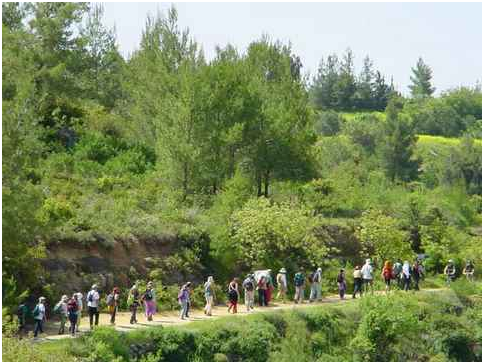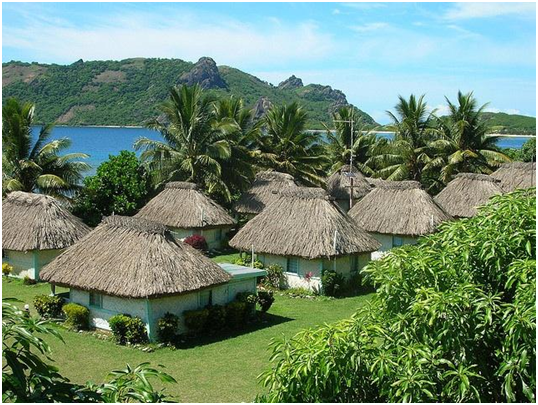
In tourism industry where a fastest pace has been seen in natural oriented-tourism but a higher standard transformation is an urgent call for ecotourism planners. Today, travel industry has enlisted the park agencies and environmental organizations and has promoted the natural travel sites as hottest possible package with dual benefits. But is the eco-tourism that all full and functional solution which this travel industry is claiming today? According to reviewers, the eco-tourism means a sound tourism.
The definition of eco-tourism is too foster and lax and may spoil the actual meanings of ecotourism industry as destructive to local or regional environment and communities. Tourism is one of the growing industry sectors in our global economy today. The tourism industry contributes $80 billion annually to global economy even during this recession period where many businesses have suffered from crucial stages of growth and declines. One of the popular segments of tourism today is traveling with nature and has been a Jorgen talk today with various names.
Tourism industry has remained a strong segment after great external threads and local community standards. The natural or eco-tourism is supposed to attract foreign tourists and a central element for sustainable economic growth in a country. The eco-tourism includes a broad level of activities and corporate involvements. Our abilities to analyze and understand the natural tourism have been hindered due to lack of acceptable definitions. The rainbow of definition for eco-tourism add ecological, involvements, support, nature-centered and incidental as major components which need to change and brought to higher standards.
An eco-tourism should be ecological to bring its all activities as ecological green and there should be Involvement of travel in activities that should support the nature restoration. The eco-tourism support component means to add appreciable financial support for protection of natural life and local communities. In the light of travel industry promotions, we come to conclusion that an eco-tourism is any such travel that includes viewing elements of ecology and natural environment. The travel industry has a green component and use of this definition will add to the attractions and values of it. So now term the nature based tourism as incidental natural based travel.

Today the people are using ecotourism with all-inclusive that tourism of any kind would be added to it. The precise definition of eco-tourism will help us to communicate the accuracy and standards of the travel. in last few decades, this has been called as “green” and many organization in past promoted their products with environmental friendly slogans until general public and consumers had been informed and learned about green seals and stamps posted on products and services. Such labels were used to deceive the travelers as they had been using green products during their travel to foreign countries.
The concept of ecotourism is complete once bringing back the ecology factor into ecotourism. The term Eco has been taken from Green word “Oikos” means “home”. The same word is used with ecology and economics and here we have to reclaim the origin for precision and strength. An early effort for ecology improvements was done by national Audubon Society, calling travel ethic for environmental responsible travel. It was asked to all the tour operators to adopt these rules. The 7 key points we discussed above deal directly with respecting bans on trade in endangered species, respect for culture, empowering and strengthening the local conservation, environmental appreciation, waste disposal, sustainability and wildlife. The ethical rules have been copyrighted by National Audubon society and cannot be changed without permission.
A similar process has been adopted by American Society of travel Agents (ASTA) and known as ASTA’s Ten Commandments;
- Respect the dignity and privacy of others
- Always follow the designated trails
- Don’t use the products made from endangered animals and plants
- A meaningful travel, you should educate yourself about culture, religion, manners, customs and geography of the country where you are visiting
- Leave only footprints and take the pictures.
- Learn about weakness and frailty of the earth and standards of protection
- Get the guidelines from ASTA travel agent about such organizations who have been subscribed to environmental guidelines for sea, land or air travel
- Follow the rules of recycling, conservation, safe management of toxic elements, community involvement, noise abatement and air quality conservation during your travel
- Utilize and adopt the environmental friendly transportation means as far as possible
- Learn about organizations who are preserving the environment, support the conservation based methods.
We have reached to that point where we need to establish the criteria which should focus on resources conservation; including the natural and cultural resources. The standards should be easy and applicable to all the travelers unless a major change is required form community to alter them. Though there can be many motives for a trip, travelers are not in the habit of conducting an environmental impact assessment for each part. Eventually we can define the different types of tourism and the impacts they cause. For a start, I have proposed a scale for classifying nature-based travel. The scale measures the level of achievement according to the principles of ecotourism.

Different levels of the ecotourism scale in some cases measure different attributes rather than increasing or decreasing amounts of the same attribute. For example, Level 1 involves net financial flow of support from the traveler to the site visited. Level 2 involves a separate attribute, personal commitment. The zero level of ecotourism demands that travelers should be aware and informed to ecosystem’s fragility where they have come for their enjoyment. In level one of ecotourism, monetary support should be incurring with continues flow to support the ecosystem and local communities.
In level of ecotourism modification, an eco-tourist will be more engaged to environmental protection and even plant the trees and participate in cleanup of the area. If we use the same standards for measuring, we can bring back the sustainable agriculture harvesting methods, checking the travelers presence as positive or neutral and system where a trip should be environmentally sound way. The level five would be the key goal to achieve and fulfill the higher standard demand of eco-tourism.

